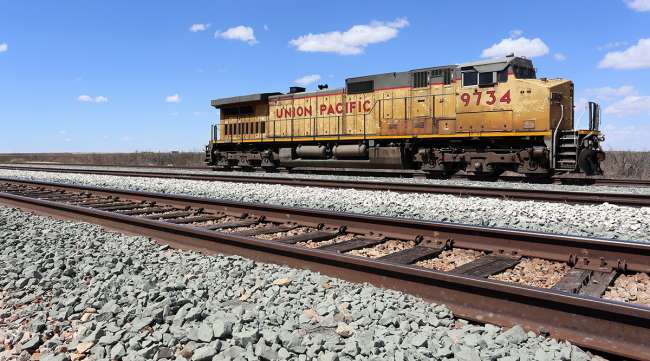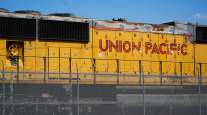Union Pacific, Switchman With Arthritic Knees Settle Discrimination Suit

Union Pacific and a former switchman at the railroad’s Grand Junction, Colo., rail yard have settled for an undisclosed amount his allegations that he was discriminated against because he has arthritic knees, the parties told Bloomberg on June 6.
The settlement comes on the heels of Judge William J. Martinez’s June 5 ruling that Kris Martin could take his disability discrimination claims to trial. The turn of events highlights how a single ruling in a case for one party or the other may precipitate a rapid resolution of a lawsuit.
Martin alleged that the railroad told him he could no longer work as a switchman because he needed braces for his arthritic knees. Union Pacific also unlawfully denied his request to wear his braces or use a makeshift cane while working as an accommodation under the Americans with Disabilities Act, he charged in the lawsuit he filed in the U.S. District Court for the District of Colorado in November 2016.
Union Pacific didn’t immediately comment June 6 beyond stating that a settlement has been reached and that the terms are confidential. Martin’s attorneys declined to comment beyond confirming that the case has been settled.
Jury Could Find for Switchman
A jury could find the railroad’s explanation that it benched Martin because his knees made him a safety risk while climbing on train cars to perform his duties really was a cover for disability bias, Martinez said in his June 5 decision.
Martin fell from a train car and hit his head on a rail during a functional safety evaluation that Union Pacific required him to submit to in May 2012. But he only fell because managers forbade him to wear his knee braces during the FSE, Martin said.
He also said he was unrealistically required to climb and manually brake 10 train cars during the FSE. That’s more climbing than switchmen, who typically use a brake stick to turn train car brake wheels, usually are required to do, Martin said.
Union Pacific denied that Martin was prevented from wearing his knee braces during the FSE.
A trial was required because a jury could credit either Martin’s or the railroad’s version of events, Martinez said.
With the settlement, a trial no longer will be necessary.
Charles A. Delbridge, David Einer Schlesinger, and Matthew Frank of Nichols Kaster PLLP in Minneapolis represented Martin.
Union Pacific in-house counsel Torry N. Garland in Omaha, Neb., represented the railroad.


